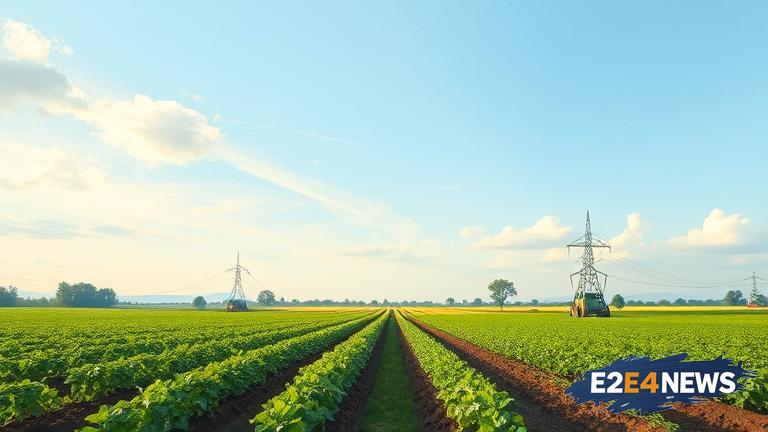The agricultural industry is on the cusp of a revolution, driven by the need to feed a growing global population while minimizing its environmental footprint. With the world’s population projected to reach 9.7 billion by 2050, the pressure to produce more food with limited resources is mounting. In response, farmers, researchers, and companies are turning to innovative solutions to boost crop yields, reduce waste, and promote sustainable practices. One of the key areas of focus is precision agriculture, which involves using advanced technologies such as drones, satellite imaging, and sensors to monitor and manage crops more effectively. This approach enables farmers to optimize irrigation, fertilization, and pest control, resulting in significant reductions in water and chemical usage. Another important trend is the adoption of vertical farming, which involves growing crops in vertically stacked layers, often in indoor environments. This method allows for greater control over growing conditions, increased yields, and reduced land use. Additionally, the use of artificial intelligence, machine learning, and data analytics is becoming increasingly prevalent in agriculture, enabling farmers to make more informed decisions and predict potential issues before they arise. The integration of renewable energy sources, such as solar and wind power, is also gaining traction, providing farmers with a cleaner and more cost-effective way to power their operations. Furthermore, the development of new crop varieties and breeding techniques is helping to improve disease resistance, drought tolerance, and nutritional content. The role of biotechnology is also significant, with genetic engineering and gene editing enabling scientists to develop crops with desirable traits. Moreover, the use of robotics and automation is transforming the way farmers plant, maintain, and harvest their crops, reducing labor costs and improving efficiency. The impact of these innovations is being felt across the globe, with countries such as the United States, China, and Brazil at the forefront of agricultural innovation. However, the adoption of these technologies is not without its challenges, including the need for significant investment, training, and infrastructure development. Despite these hurdles, the potential benefits of these innovations are substantial, with the potential to increase global food production, reduce poverty, and promote sustainable development. As the world continues to urbanize and the demand for food grows, the importance of sustainable agriculture will only continue to increase. The use of digital platforms and e-commerce is also changing the way farmers connect with consumers, enabling them to sell their products directly and receive feedback in real-time. The growth of the organic and specialty foods market is also driving innovation, with consumers increasingly demanding higher-quality, sustainably produced products. In conclusion, the agricultural sector is undergoing a significant transformation, driven by the need for sustainable and efficient food production. The adoption of innovative solutions, such as precision agriculture, vertical farming, and biotechnology, is poised to revolutionize the way we produce food, with significant benefits for the environment, farmers, and consumers alike. As the industry continues to evolve, it is likely that we will see even more exciting developments, from the use of blockchain technology to improve supply chain transparency to the development of new, climate-resilient crop varieties. Ultimately, the future of agriculture is bright, with the potential to feed a growing global population while promoting sustainable development and reducing our environmental footprint.
